How customized online-stores are built in Czech & Slovak Republic: survey among e-commerce software houses
Written by
Editorial TeamPublished on

If you are looking for a supplier of customized online store solutions, there are currently 242 Czech and Slovak agencies to choose from, and trying to pick the right one can feel like an impossible task. How do the individual agencies differ?
We’ve searched the entire market and have compiled information on how large e-shops are built, how long the construction takes, what technologies the agencies use, and how much they invest in developing their platforms.
MORE ABOUT RESEARCH
● SaaS solutions – simple setup, quick launch, limited editing options.
● Ready-made solutions – often referred to as tailor-made by e-commerce agencies, but this can be misleading. Agencies generally have one model online store, and various modules that can be added into it. The design is individualized and some functions are sometimes customized.
● Tailor-made solutions – all features are developed per customer requirements, which is reflected in the price of the solution.
● In-house development – rather than developing an online store by outsourcing, an e-shop relies on its own programmers.
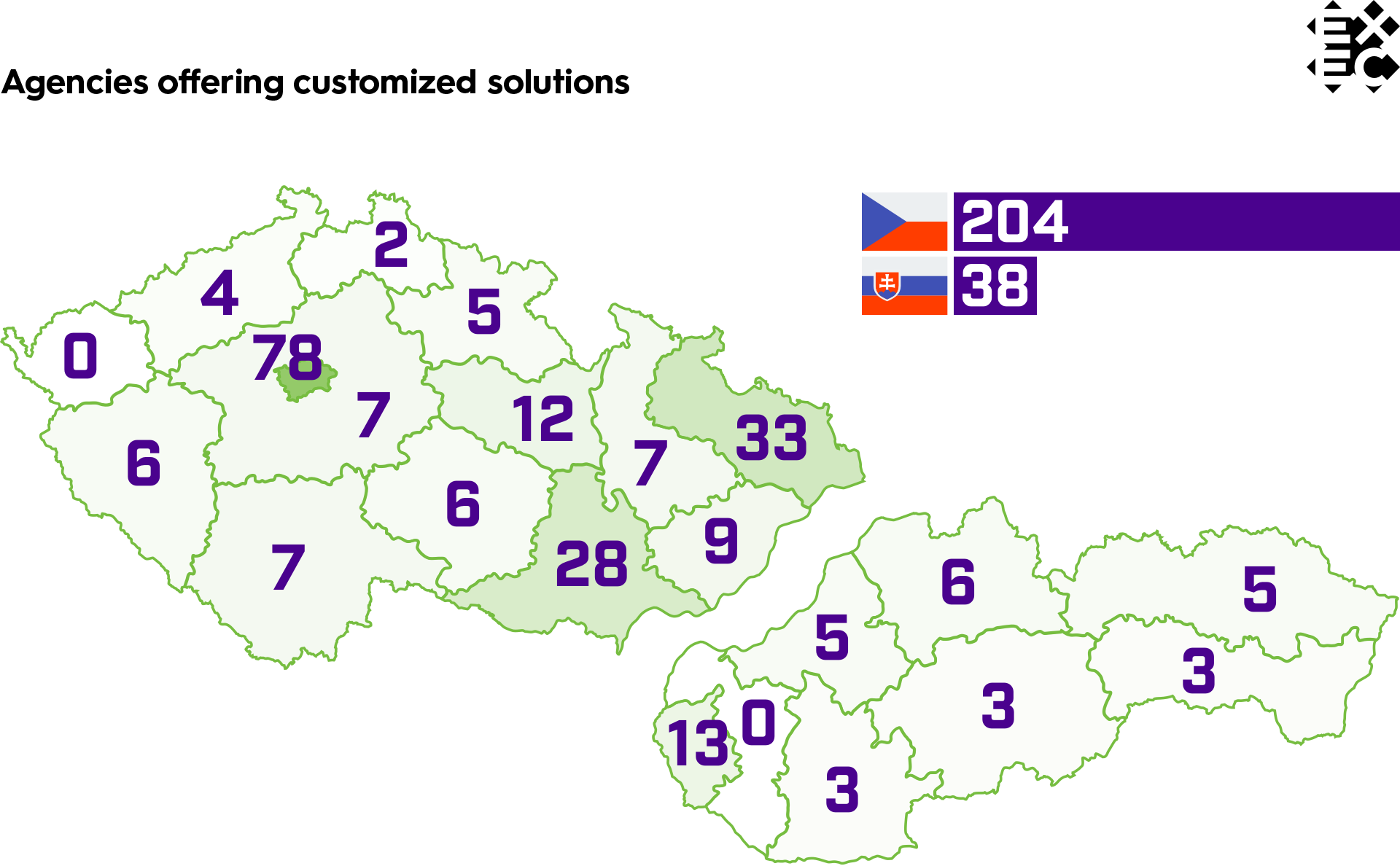
There are 242 agencies in the Czech Republic and Slovakia offering customized online store solutions
84% of them, ie. 204, come from the Czech Republic. The largest concentration of agencies is in Prague (78), Moravian-Silesian (33), and Southmoravian (28) region.

The annual turnover of agencies offering tailored online store solutions in the CzechRepublic and Slovakia is 162 million EUR.

The lower limit of the interval is typical for SaaS solutions with a minimum of customization. On the other hand, the highly individualized B2C solutions and B2B portals can go well beyond the
400 thousand mark.
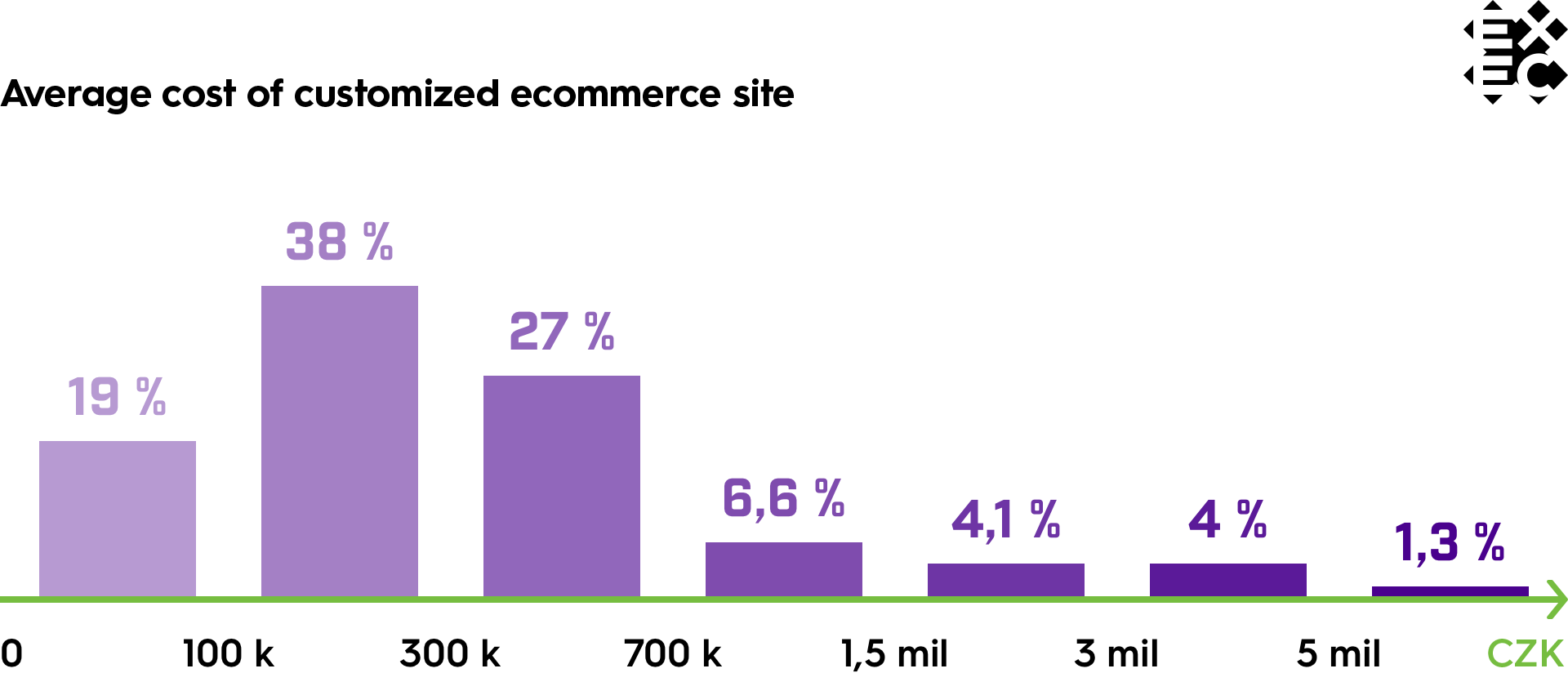
Only a few agencies offer truly individualized solutions
Almost 60% of agencies create tailor-made e-shops in the range of 12,000 EUR. However, it is unrealistic to offer a tailor-made solution at this price, and the majority cost anywhere from 25,000 to hundreds of thousands. Currently, there are just a handful of agencies capable of building these bigger and truly individualized solutions.
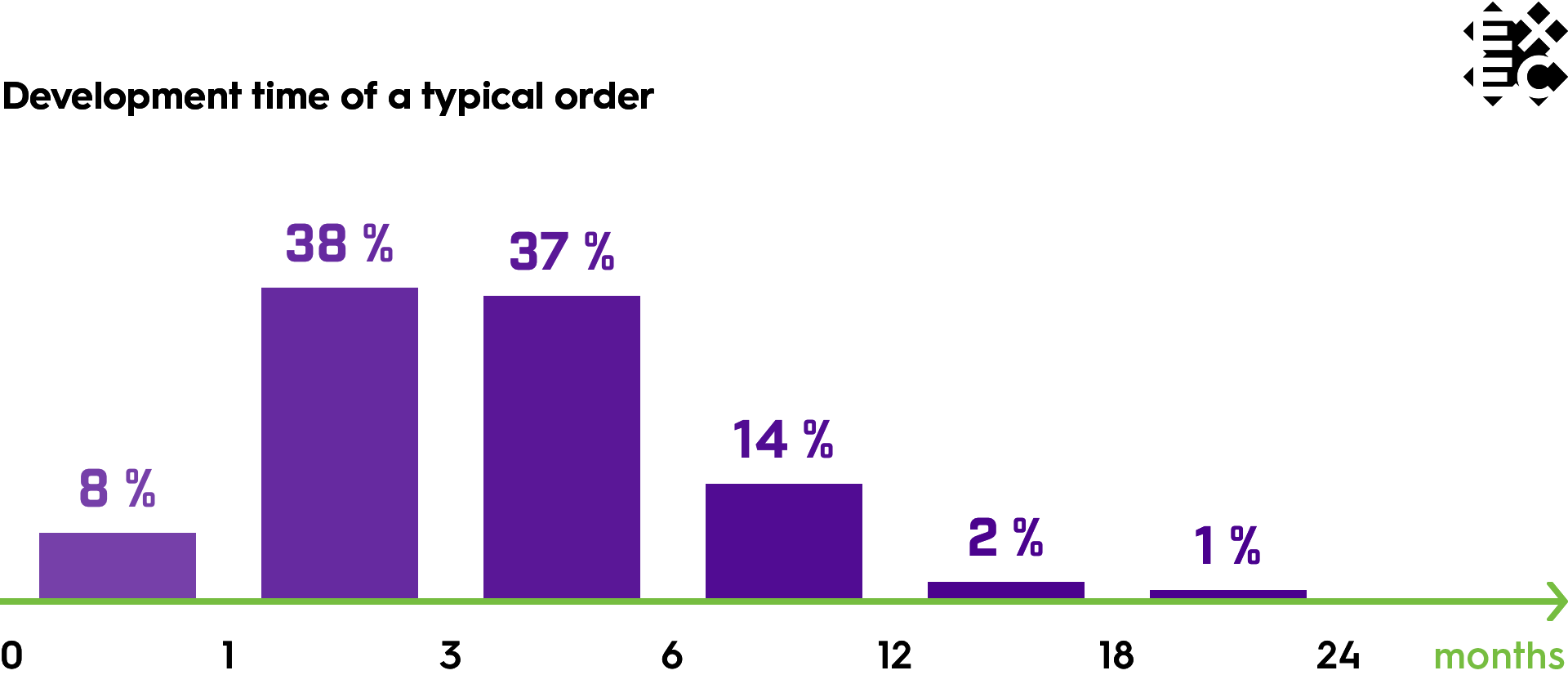
83% of tailored e-shops are built within six months
It should be mentioned that we are talking only about the implementation time, ie. the period from writing the first line of code to the launch of the store. However, the implementation phase is preceded by negotiations on the price and possible waiting for free capacity of the supplier, so
the total time between “we want an e-shop” and “we’ve launched our e-shop” is much longer.
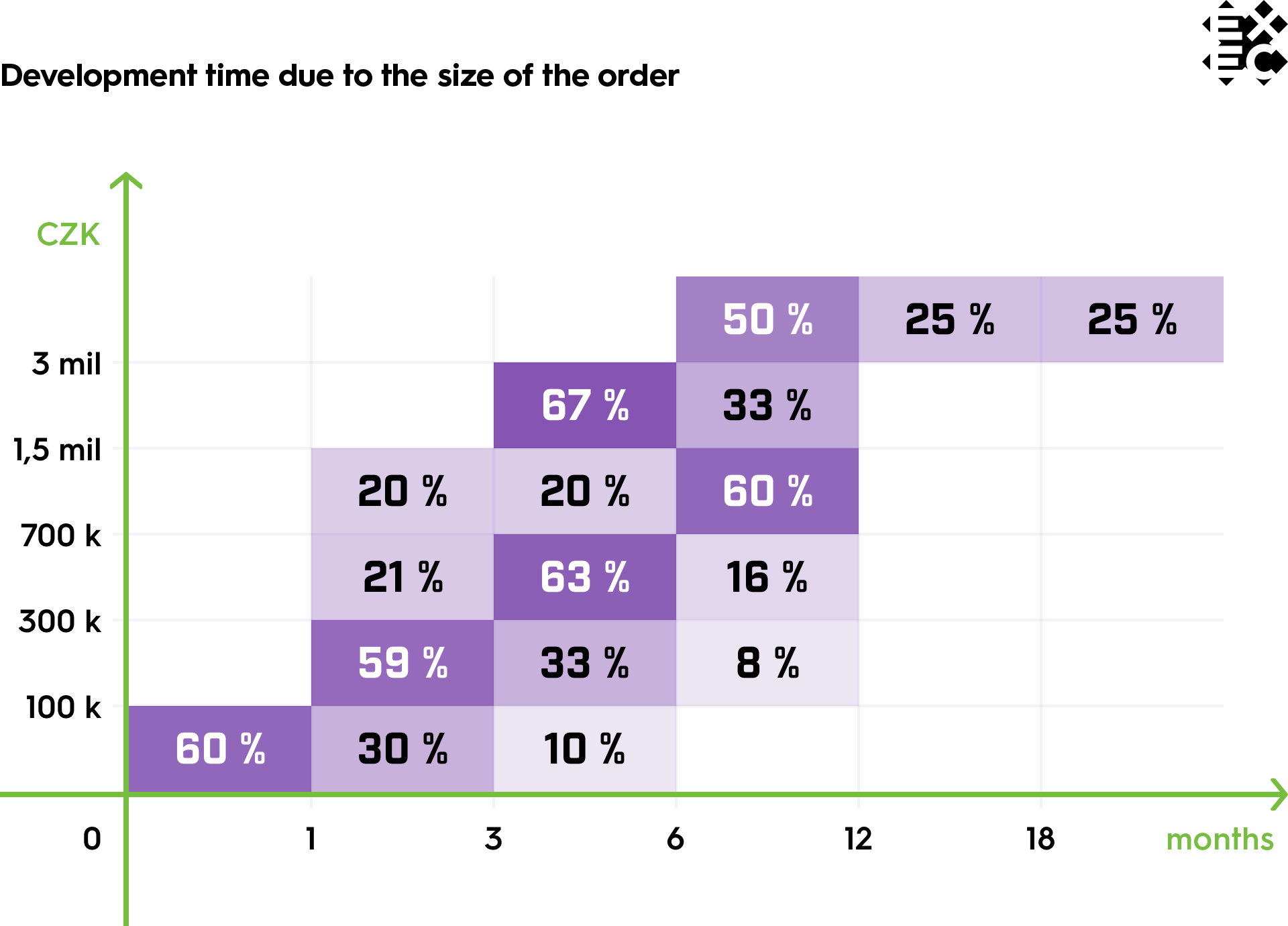
Not surprisingly, the more expensive an e-shop, the longer it takes to develop
What is interesting is that orders of 55,000 – 110,000 EUR are developing faster than those that are between 27,000 – 55,000 EUR. This is probably because the larger projects have dedicated custom programming teams that are able to move forward quickly.
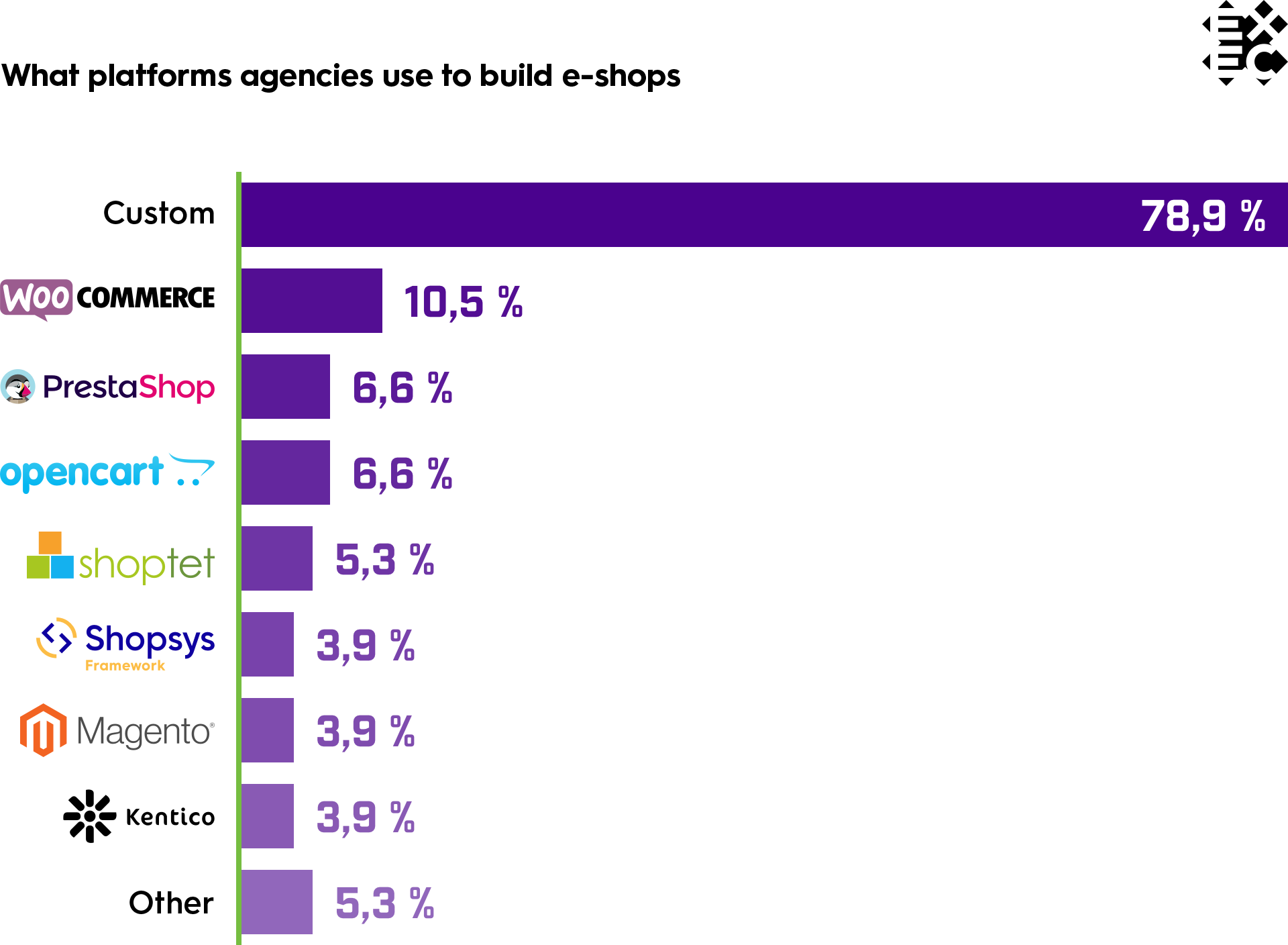
Almost 80% of agencies use their own platform to build e-shops
In Western Europe, the ratio is quite the opposite; agencies rely on third-party platforms and frameworks that are often open-source.
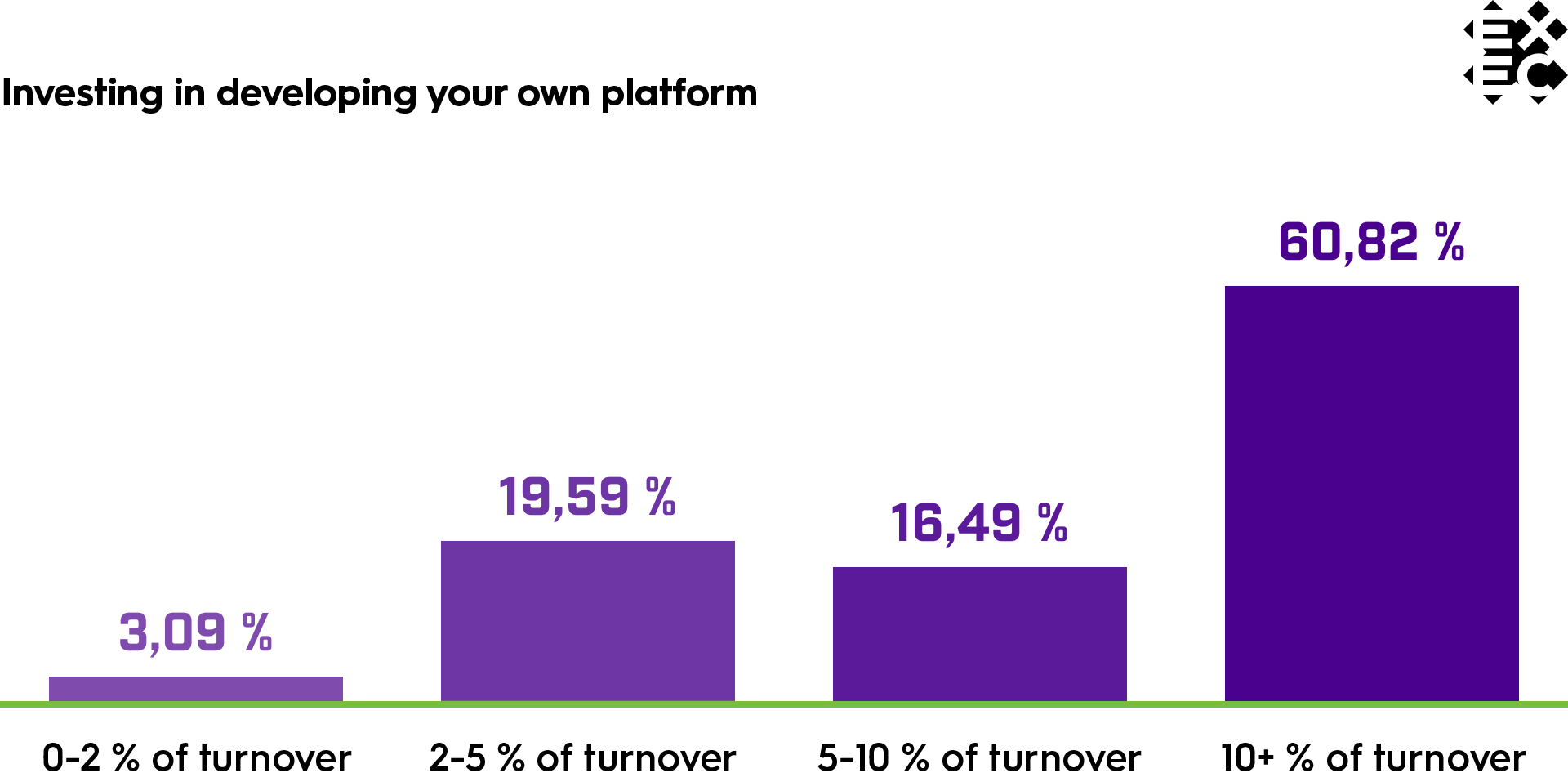
Three-fifths of agencies with their own platform invest more than 10% of their turnover in platform development.
Keeping your own solutions technologically up-to-date is extremely challenging, and the main cost often ends up being the payroll costs of programmers who maintain the systems.

Agencies will spend 70,000,000 EUR on developing their own platforms over the next five years.
Almost 80% of agencies have their own platform and over 60% of them invest more than 10% of their turnover into the development of their platforms. In the medium term of five years we are seeing tens of millions EUR invested in development, and naturally this reflects in the prices of
e-shop solutions.
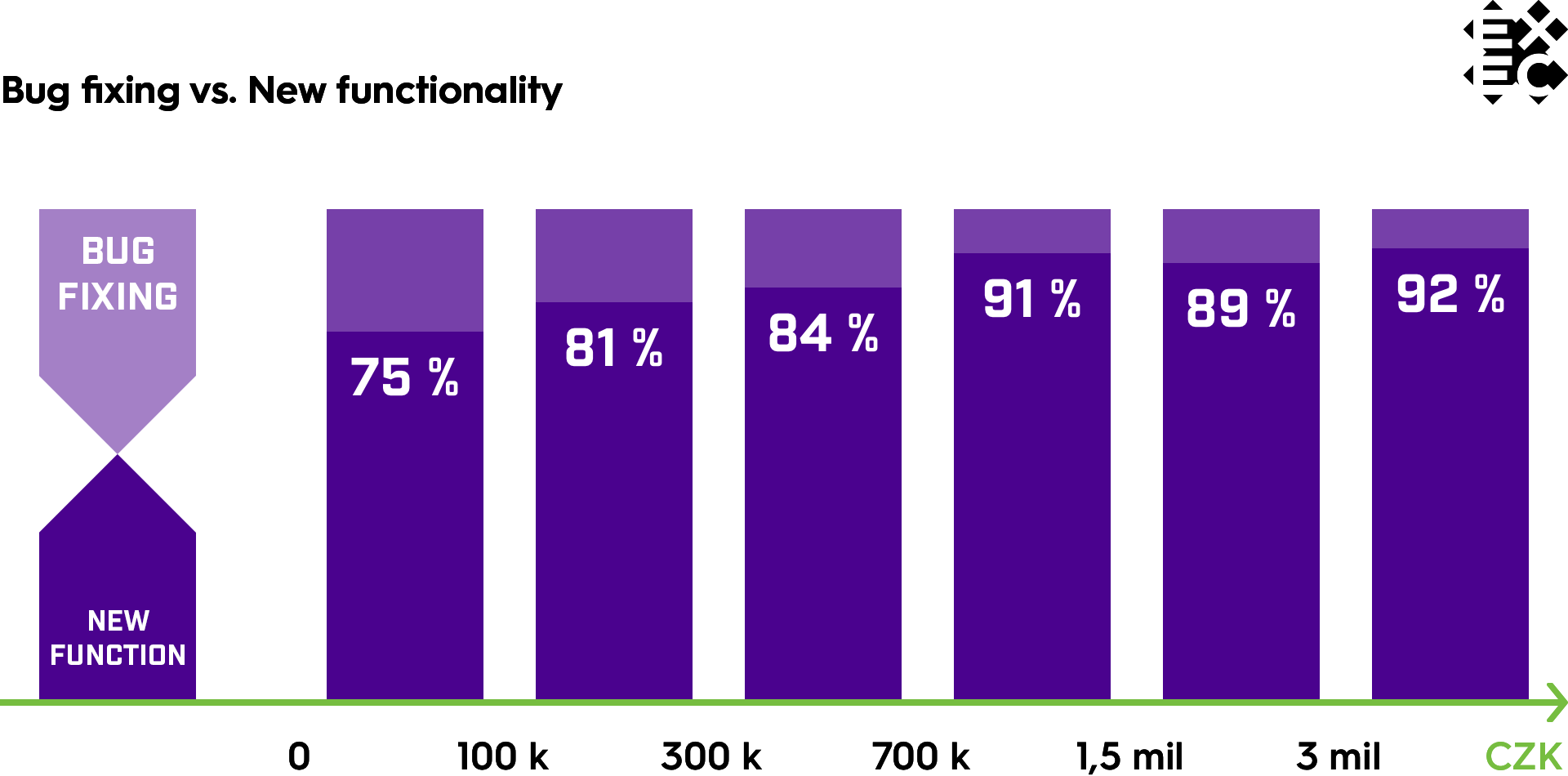
The larger the initial investment, the smaller need to invest in bug fixes when maintaining an e-shop.
It is logical – when the e-shop is actually tailored and means for proper project management are allocated in the budget, there are more reliable solutions with fewer errors that need to be corrected. Therefore, it makes sense not to avoid a higher initial investment in the e-shop, as
the long term returns will result in significant savings.

” The Czech and Slovak market is very specific in terms of what currently used.The vast majority of software houses ( 78.9%) develop and provide their own e-commerce platforms, unlike the majority of western European countries.As pressure to provide more effective solutions with no-vendor-lock criterium becomes the norm, of other countries by using available frameworks and platforms already on the market.” – Petr Svoboda, CEO and Founder at Shopsys.
This study was specifically done by the ecommerce magazine Exec, published by Shopsys, which is the # 1 ecommerce platform in the Czech Republic and Slovakia.


